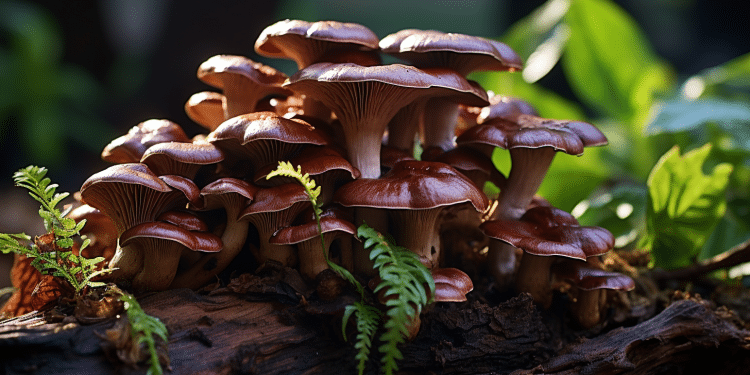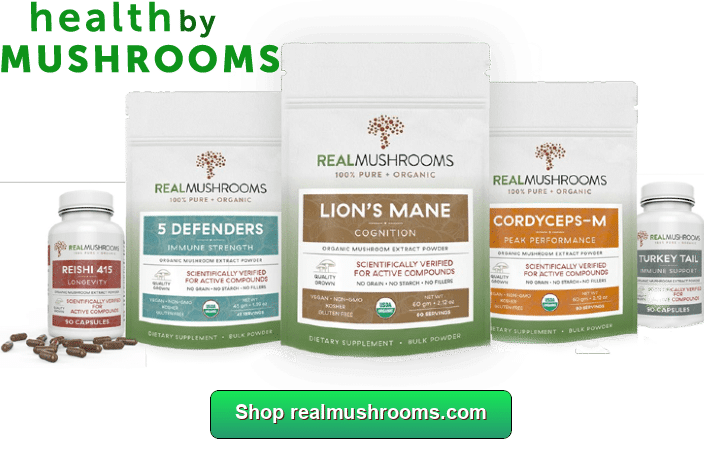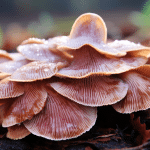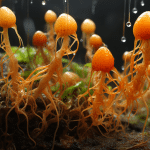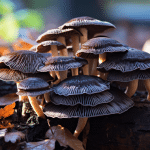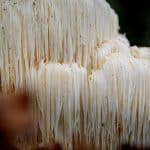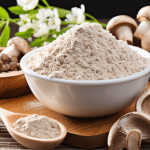Reishi mushroom, or also known as Ganoderma lucidum and ganoderma sinense, is commonly know to be the mushroom of immortality or longevity and is considered by many to be the best mushroom supplement for cancer. With so many different types of mushrooms, Reishi mushrooms are one of the most widely used for cancer prevention and inhibiting tumor growth.
Mushrooms have immunological and cognitive benefits. Since ancient times, reishi has been used as a traditional medicine in East Asia to prevent cancer. It is a traditional therapy in Asia used to treat various illnesses. Reishi mushrooms have been shown in studies to help you live longer, fight aging, and boost energy. Mushrooms are used in China to strengthen people’s immune systems before they receive chemotherapy or radiation treatment.
This post contains affiliate links and I will be compensated if you make a purchase after clicking on my links. We and the vendors we highlight appreciate your support.
Table of Best Mushroom Supplements for Cancer
| Type of cancer | Suggested Mushroom |
| Breast cancer | Reishi, maitake and turkey tail |
| Colon cancer | Reishi, maitake and turkey tail |
| Gastric cancer | Turkey tail |
| Hepatocellular carcinoma | Agaricus and reishi |
| Leukemia | Agaricus and reishi |
| Lymphoma | Cordyceps |
| Lung cancer | Reishi |
| Non-small cell lung cancer | Cordyceps |
| Prostate cancer | Reishi |
| Sarcoma | Reishi |
You can find the highest quality supplements containing these mushrooms from Real Mushrooms, one of our trusted vendors and most likely the highest integrity brand in the medicinal mushroom market:
Reishi mushrooms are thankfully easily accessible. You can find them online and in many different forms like capsules, powders, and even easy-to-use teas.
Turkey tail mushrooms are another popular choice for cancer patients. These mushrooms are rich in antioxidants and polysaccharides, which are believed to help boost the immune system. Turkey tail mushrooms can be taken as capsules or powders.
Shiitake, Maitake, and Cordyceps mushrooms are great alternatives, or even pairings that you can take alongside Reishi mushroom. These mushrooms also offer similar compounds that help inhibit tumor growth and have shown great immune system boosting properties.
Best Mushroom for Bone Cancer
Bone cancer is one of many different types of cancer. It’s a type of cancer that begins in the cells of bones, and can spread throughout the body. One of the most common types of bone cancers is osteocarcoma.
Like other cancers the typical treatment regimen includes surgery, radiation, and chemotherapy. So that is where reishi mushrooms and turkey tail mushrooms can be the best mushroom for bone cancer as they can help keep your immune system strong during the chemotherapy process.
Both are great for bone cancer patients due to their high nutrient and anti-oxidant levels.
Learn more: Best mushroom supplement for depression
Best Mushroom For Stomach Cancer
Stomach cancer, also known as gastric cancer, is a type of cancer that begins in the stomach. Treatment for stomach cancer typically involves surgery, radiation, and chemotherapy.
Patients with stomach cancer may also choose to take a supplement to help boost their immune system and fight the cancer cells. Mushroom supplements could be a good option for stomach cancer patients. Turkey tail mushrooms are known for their immune-boosting and anti-cancer properties and could be good choices for someone to supplement during their cancer treatment.
Learn more: Mushroom extract
Best Mushroom For Breast Cancer
Breast cancer is a type of cancer that begins in the cells of the breast. Treatment for breast cancer typically involves surgery, radiation, and chemotherapy.
Patients with breast cancer may also choose to take a supplement to help boost their immune system and fight the cancer cells. One of the best mushroom supplement for cancer could be a good option for breast cancer patients. Reishi, maitake, and turkey tail mushrooms are all known for their immune-boosting and anti-cancer properties and could be good choices for someone to supplement during their cancer treatment.
Additional resources:
